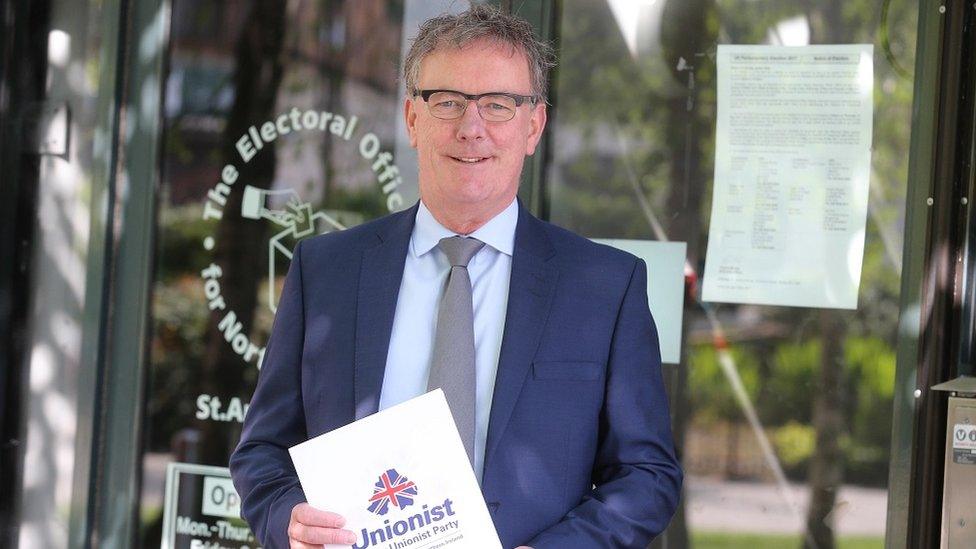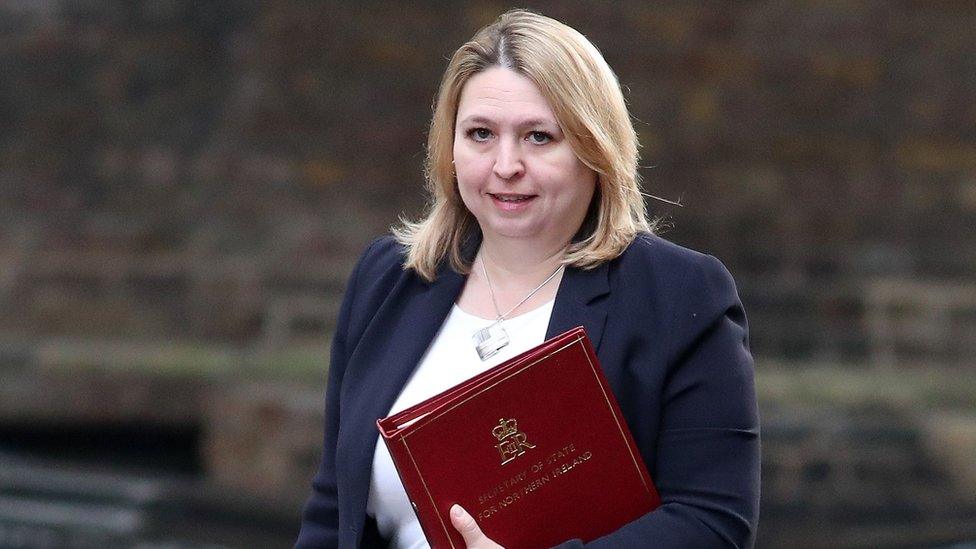Mike Nesbitt proposes 'three-person commission' for Northern Ireland
- Published

Mike Nesbitt's said his idea for a commission was inspired by the performance of the RHI inquiry panel
Former Ulster Unionist leader Mike Nesbitt has proposed a commission be created to make decisions in Northern Ireland in the absence of an executive.
Mr Nesbitt said the three-person commission could hear submissions from senior civil servants who would list urgent priorities.
The commission would then draw up a list of what they consider the most pressing issues.
These would then be taken to Stormont party leaders to vote on.
Mr Nesbitt's proposal appears on the website of Northern Ireland political commentator Eamonn Mallie, external.
Under Mr Nesbitt's plan, no vote would be carried unless it is supported by leaders whose combined number of MLAs is 60.
He said the process for appointing commissioners would be that each party proposes two names which would then form a list from which each party has the right to exclude one name.
Parties would then select their top three, with three points for a first choice, two for second and one for third.
Mr Nesbitt said the commission was inspired by the performance of the three-person panel running the Renewable Heat Incentive (RHI) inquiry.
"The point is if there is a will, it can be done," he said.
"Once up and running, there could be a role for the assembly and its committees, as a scrutiny body, presumably inspired by the RHI Inquiry to delve deeper and think smarter."

Analysis: Mark Devenport, BBC News NI political editor
Mike Nesbitt's blue sky thinking reflects the widespread frustration felt by politicians across the board about the intractable nature of the deadlock at Stormont.
The Northern Ireland Office's latest blueprint has few fans amongst the Stormont parties or the civil servants charged with running public services.
There is a fear that, at best, it will only enable a prolonged period of "lowest common denominator" governance and, at worst, could be overturned by further legal challenges.
This week's report of the Independent Reporting Commission pointed up a number of initiatives intended to combat paramilitary activity which cannot be put into action because of the absence of ministers and an assembly.
Those logjams are replicated in many other areas, such as health and education.
A commission to take decisions might seem an attractive alternative, but it's unlikely Mr Nesbitt's old rivals in the two main parties or a British government overwhelmingly pre-occupied with Brexit, will be quick to adopt this proposal.

On Wednesday, legislation to give Northern Ireland civil servants more legal clarity to make decisions in the absence of ministers is expected to be fast-tracked through Parliament.

Mr Nesbitt said Secretary of State Karen Bradley's plans are "not universally popular to say the least"
However, Mr Nesbitt said Secretary of State Karen Bradley's attempts to hand some decision-making powers to the Northern Ireland Civil Service, are "not universally popular, to say the least".
Mr Nesbitt said his suggestion "is a personal proposal, not party policy, offered as Westminster begins to debate how best to deal with the pressures mounting on hospital waiting lists, school budgets and other pressing needs.